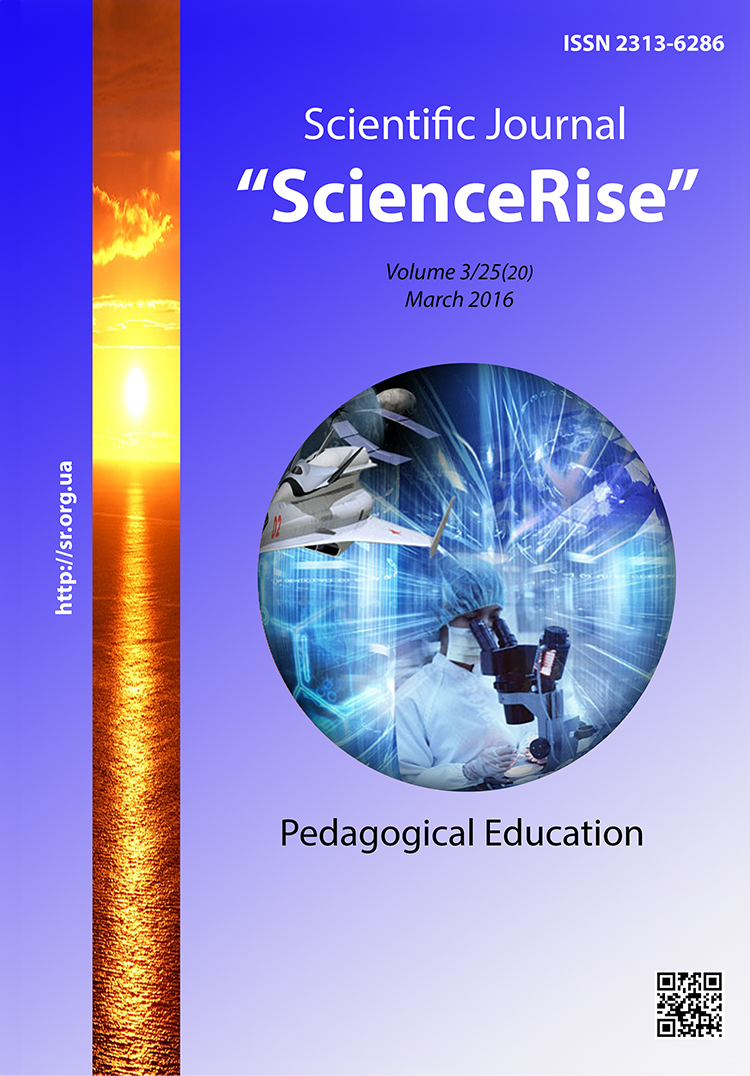Foreign language teaching for specific purposes: basic aspects
DOI:
https://doi.org/10.15587/2313-8416.2016.64803Keywords:
English for Specific Purposes, ESP definition, ESP evolution, ESP teaching objectives, ESP teacher, ESP teaching and learning, ESP courseAbstract
The present article is an attempt to understand, analyse and provide an overall picture on basic aspects of English for Specific Purposes: its definition, scope, historical background, characteristics, types and aims. It also discusses the ESP teaching objectives, the role of ESP teacher and the training process to become an ESP teacher, the purpose of an ESP course and an ESP program.
We see a clear rationale, amongst the variety of contradicting views on ESP policy, in coming to an agreement finally that ESP is the teaching of English to the learners who have specific goals and purposes: professional, academic or scientific.
The article analyses the main roles and functions of teachers of foreign languages for specific purposes. It outlines the general tasks and responsibilities of higher education teachers whose professional activity is multispectral and multifunctiona; it also analyses the ESP courses and their specific featuresReferences
Hutchinson, T., Waters, A. (1987). English for Specific Purposes: A learner-centered approach. Cambridge: Cambridge University Press, 183. doi: 10.1017/cbo9780511733031
Abdelkareem, M. D. Teaching ESP in a Blended Learning Setting. Available at: http://www.qou.edu/english/conferences/firstNationalConference/pdfFiles/abdelkareem.pdf
Dudley-Evans, T. (1998). Developments in English for Specific Purposes: A multi-disciplinary approach. Cambridge: Cambridge University Press, 301.
Strevens, P.; Tickoo, M. (Ed.) (1988). ESP after twenty years: A re-appraisal. ESP: State of the art. SEAMEO Regional Language Centre, 1–13.
Basturkmen, H. (2010). Developing Courses in English for Specific Purposes. Palgrave: Macmillan, London, 157. doi: 10.1057/9780230290518
Basturkmen, H. (2005). Ideas and Options in English for Specific Purposes. London: Lawrence Erlbaum Associates, Inc., Publishers, 183. doi: 10.4324/9781410617040
Stern, H. H.; Allen, P., Harley, B. (Eds.) (1992). Issues and options in language teaching. Oxford: Oxford University Press, 404.
Johns, A. M., Dudley-Evans, T. (1997). English for Specific Purposes: International in Scope, Specific in Purpose. TESOL Quarterly, 25 (2), 297. doi: 10.2307/3587465
Mohammad, K. A. (2014). The ESP Teacher: Issues, Tasks and Challenges. English for Specific Purposes World, 15 (42). Available at: http://www.esp-world.info/Articles_42/Documents/Ahmed.pdf
Jendrych, E., Wisniewska, H. ESP: How to design challenging tasks for adult learners. Pixel. Available at: http://conference.pixel-online.net/ICT4LL2010/common/download/Proceedings_pdf/CLIL01-Jendrych,Wisniewska.pdf
Stern, H. H.; Johnson, K. (Ed.) (1989). Seeing the wood AND the trees: some thoughts on language teaching analysis. The second language curriculum. Cambridge: Cambridge University Press, 207–221. doi: 10.1017/cbo9781139524520.015
Douglas, D.; Paltridge, B., Starfield, S. (Eds.) (2013). Needs Analysis and Curriculum Development. Oxford: Wiley Blackwell, 207–221.
Milevica, B. (2006). Teaching Foreign Language for Specific Purposes: Teacher Development. Convention Center Bernardin Portorož, Slovenia, 487–793. Available at: http://www.pef.uni-lj.si/atee/978-961-6637-06-0/487-493.pdf
Downloads
Published
Issue
Section
License
Copyright (c) 2016 Svitlana Grynyuk

This work is licensed under a Creative Commons Attribution 4.0 International License.
Our journal abides by the Creative Commons CC BY copyright rights and permissions for open access journals.
Authors, who are published in this journal, agree to the following conditions:
1. The authors reserve the right to authorship of the work and pass the first publication right of this work to the journal under the terms of a Creative Commons CC BY, which allows others to freely distribute the published research with the obligatory reference to the authors of the original work and the first publication of the work in this journal.
2. The authors have the right to conclude separate supplement agreements that relate to non-exclusive work distribution in the form in which it has been published by the journal (for example, to upload the work to the online storage of the journal or publish it as part of a monograph), provided that the reference to the first publication of the work in this journal is included.

